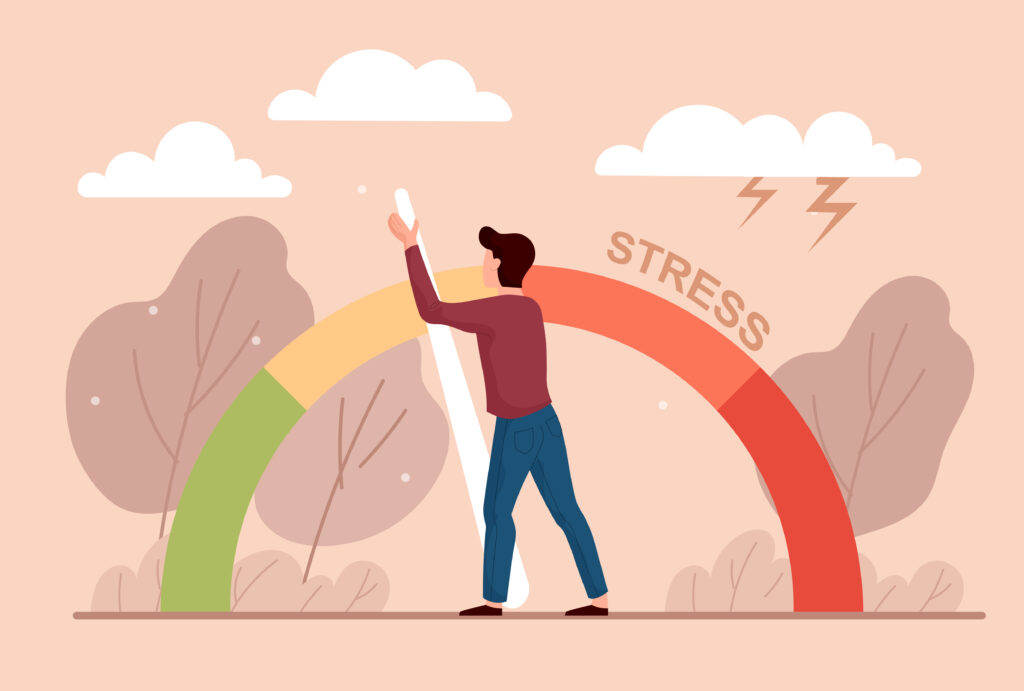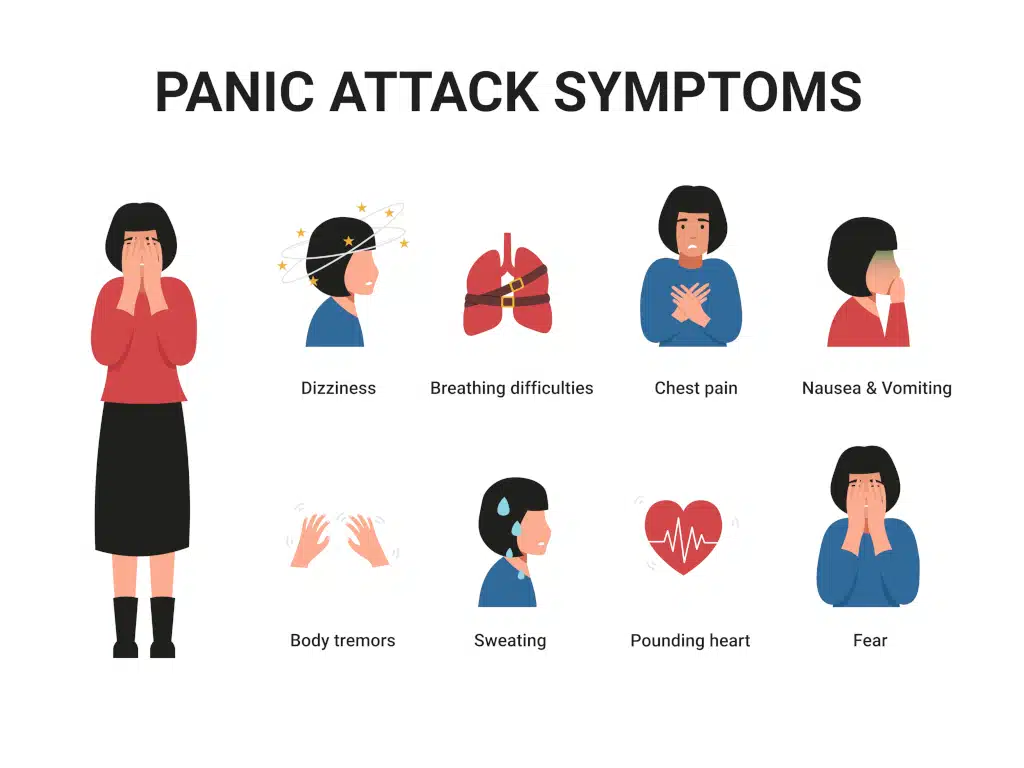Signs Your Body Is Stressed to Look Out For
Stress can have a profound impact on your physical and mental well-being. By being aware of the signs, you can take proactive steps to manage your stress levels and prioritize your health.
Understanding the signs of stress in our bodies is crucial for our overall well-being. By identifying and acknowledging these signs, we can take the necessary steps to manage our stress levels and lead a healthier, more balanced life. So, pay attention to your body, listen to the signals it sends, and prioritize self-care.
Understanding Stress and Its Impact on Your Health
Stress is more than just a feeling of being overwhelmed. It has a physiological impact on your body as well. Understanding the definition of stress, how your body responds to it, and the difference between acute and chronic stress is essential in recognizing the signs of stress in your body.
Defining Stress: More Than Just a Feeling
Stress is a natural response to external pressures or demands. It can be triggered by various factors, such as work-related challenges, personal relationships, or financial difficulties.
When you’re stressed, your body undergoes a series of biochemical and physiological changes to prepare you to deal with the perceived threat or challenge.
The Biological Stress Response: What Happens Inside Your Body
When you encounter a stressful situation, your body releases stress hormones, such as cortisol and adrenaline.
These hormones initiate the “fight-or-flight” response, increasing your heart rate, elevating your blood pressure, and sharpening your senses. This response prepares your body to either confront the stressor or escape from it.
Chronic vs. Acute Stress: Know the Difference
While acute stress is a short-term response to a specific event, chronic stress persists over an extended period.
Acute stress can be beneficial in certain situations, allowing you to perform better under pressure. However, chronic stress can have detrimental effects on your physical and mental health.
Physical Manifestations: How Your Body Signals Distress
Stress can have a significant impact on your physical well-being, and it often manifests itself in various physical symptoms. By recognizing these signs, you can identify when your body is under stress and take appropriate measures to alleviate it. Some common physical symptoms of stress include:
- Headaches: Stress-induced tension can result in frequent headaches or migraines.
- Muscle tension: Stress can cause muscle tension and tightness, leading to discomfort or pain.
- Digestive issues: Stress can disrupt the normal functioning of the digestive system, resulting in symptoms such as stomachaches, nausea, or changes in bowel movements.
- Changes in appetite: Stress can trigger changes in appetite, leading to either overeating or loss of appetite.
It’s essential to pay attention to these physical manifestations as they can indicate that your body is under stress. If you’re experiencing any of these symptoms, it’s important to address the underlying stress to prevent further health issues. Seeking support from a healthcare professional or implementing stress management techniques can help you manage your stress levels effectively.
Emotional and Cognitive Indicators of Stress
Stress doesn’t just impact your physical well-being, but it also takes a toll on your emotional and cognitive health. Recognizing the emotional and cognitive signs of stress is crucial to understanding when your body is under excessive strain.
Mood Fluctuations as Stress Indicators
One of the common emotional signs of stress is mood fluctuations. You may find yourself feeling more irritable, anxious, or restless than usual. Stress can make it difficult to regulate your emotions, leading to sudden mood swings and heightened reactivity to everyday situations.
Mental Exhaustion and Stress: The Invisible Load
Another cognitive sign of stress is mental exhaustion. When you’re stressed, your brain works overtime, constantly analyzing and worrying about various stressors. This mental strain can leave you feeling mentally drained, fatigued, and unable to concentrate on tasks.
Stress-Induced Anxiety: Recognizing the Patterns
Anxiety is a common response to stress. Prolonged exposure to stress can trigger chronic anxiety, characterized by persistent feelings of unease, fear, and apprehension. Stress-induced anxiety may manifest as physical symptoms like rapid heartbeat, shortness of breath, or trembling.
Behavioural Changes: The Outward Signs Your Body Is Stressed
Stress can have a significant impact on your behavior, leading to noticeable changes in how you interact with others and take care of yourself. Recognizing these behavioral signs can help you better understand and address the underlying stress in your life.
From Isolation to Irritability: Stress-Related Behavioral Shifts
One common behavioral sign of stress is social withdrawal or isolation. When you’re overwhelmed by stress, you may find yourself avoiding social interactions and preferring to spend time alone.
Additionally, stress can cause irritability and a shorter fuse, making you more prone to frustration and snapping at others.
Eating Habits and Stress: A Complicated Relationship
Stress can also have a significant impact on your eating habits. While some individuals may experience a loss of appetite and have difficulty eating when stressed, others may turn to food for comfort and exhibit emotional eating behaviors.
These changes in eating habits can contribute to an unhealthy relationship with food and potentially lead to weight gain or loss.
The Vicious Cycle of Stress and Sleep Disturbances
Stress and sleep disturbances often go hand in hand, creating a vicious cycle that can be difficult to break. When under stress, many individuals experience difficulty falling asleep or staying asleep through the night.
On the other hand, lack of quality sleep can further exacerbate stress levels, making it challenging to find relief. It’s crucial to prioritize healthy sleep habits and manage stress effectively to break this cycle.
Conclusion
Managing stress plays a crucial role in maintaining a healthy and balanced lifestyle. By being aware of the signs of stress in your body, you can take proactive steps to reduce and manage it effectively. Incorporating stress reduction techniques into your daily routine can be highly beneficial.
Incorporating stress reduction techniques such as exercise, mindfulness, and seeking social support can greatly contribute to managing and reducing stress in your life.
Prioritizing self-care and seeking professional help whenever necessary are essential steps toward achieving a stress-free lifestyle. By taking control and implementing these strategies, you can lead a healthier, happier, and more balanced life.










